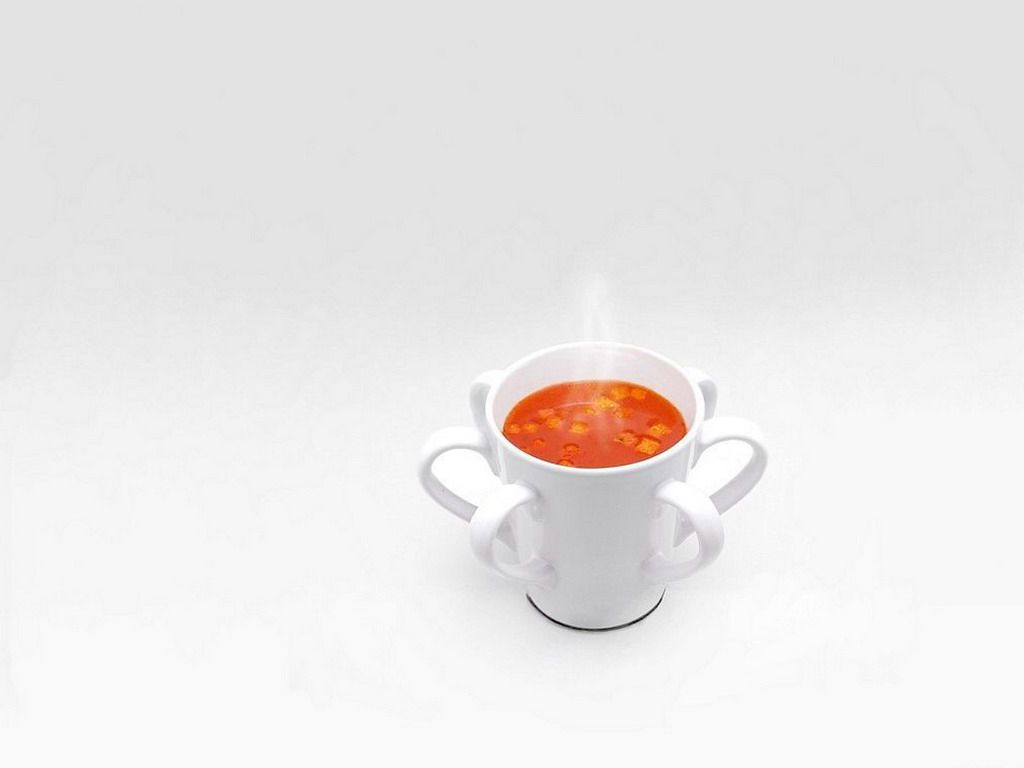Instant soups are deadly
Last reviewed: 23.04.2024

All iLive content is medically reviewed or fact checked to ensure as much factual accuracy as possible.
We have strict sourcing guidelines and only link to reputable media sites, academic research institutions and, whenever possible, medically peer reviewed studies. Note that the numbers in parentheses ([1], [2], etc.) are clickable links to these studies.
If you feel that any of our content is inaccurate, out-of-date, or otherwise questionable, please select it and press Ctrl + Enter.
Instant soups, stuffed with preservatives and flavor enhancers, were invented for the hungry peoples of Africa.
Manufacturers of instant soups attract consumers with images of mouth-watering pieces of meat, vegetables and mushrooms. However, after opening the package, we find in it something that has been dried up beyond recognition.
Fortunately, no dogs in the literal sense of the word in the lunch-"minutes" was not found. We handed over 5 samples of soups to the laboratory to check if the bright inscriptions on the packages were cheating us: "Natural chicken fillet" and "Beef meat"? And here is the first surprise: in all the soups specialists found the DNA of the type of meat that was indicated on the label. DNA is, of course, good. But why are tiny brown pieces reminiscent of anything, just not meat? "The manufacturer receives this product by drying. Meat fibers are destroyed in it, and it is impossible to determine the age of the pieces, "says Vera Pisareva, head of the Independent Expert Laboratory. "It is possible that they are made from meat that has been stored for decades." And why, in fact, not to try the crackers from the cow, hammered in the last century?

But this is not the most terrible in the rich content of soups. "Do you want to get a bag of poison? In my opinion, enough to pour into it all the ingredients of instant soup! - Alexei Kovalkov, a dietitian, head of the weight correction clinic, appeals to the common sense of consumers. - As a rule, these products contain all the cheapest and substandard: palm oil (the most harmful of all, except, perhaps, the engine), phosphates (retain water in the body), fat, dyes ... Very dangerous glutamate sodium - the enhancer of taste, thanks which the food seems terribly appetizing: the brain and organism are deceived.
A person "planted" on such soups, after a while, ceases to feel the taste of natural broth, he seems to him insipid. "
Instant soups, stuffed with preservatives and flavor enhancers, were invented for the hungry peoples of Africa ... "In the composition of instant soups, producers indicate dyes and flavors marked" identical to natural. " This is pure chemistry, there is nothing natural there, "warned Dmitry Edelev, rector of the Moscow State University of Food Production. Also, guar gum, a toxic substance, is not useful for the body. "In the West, experiments were conducted: rats and insects refused to eat such soups. There is nothing alive in them, "says Dmitry Edelev.
As a rule, the manufacturer packs flavoring additives into separate bags: if you want - pour out on noodles, you do not want - eat only macaroons. But there is a catch here too. Harmless noodles are nothing but fast carbohydrates. And from them, according to the nutritionist, sugar jumps sharply, to which the pancreas reacts with powerful insulin outflows, and as a result we can get a diabetes of the second degree. "There are such things you can not!" Exclaims Kovalkov and talks about a friend who got from "fast meals" to the intensive care unit: "After 2 weeks of regular consumption of such food, it is likely that you will get gastritis, gastroenteritis and other diseases of the gastrointestinal tract."
But we still found a positive moment - on one of the soups it was written: it contains vitamins! I could not believe it. "Vitamins in such products can indeed be contained," Vladimir Bessonov, head of the Food Chemistry Laboratory of the Institute of Nutrition of the Russian Academy of Medical Sciences, dispelled our doubts. "To develop the cosmonauts, we developed a special drying technology that allows us to save useful substances." Weak, but still a consolation.

